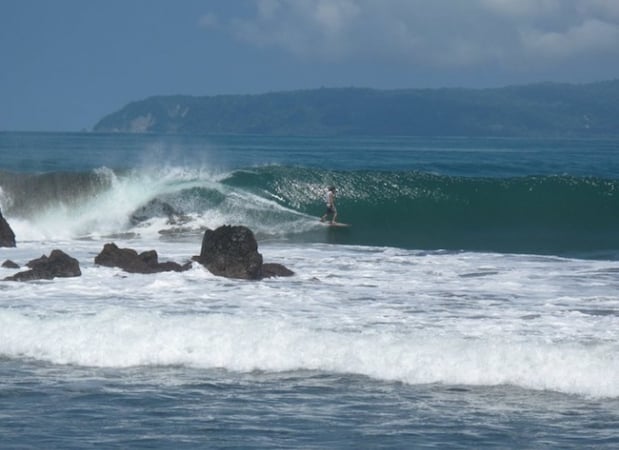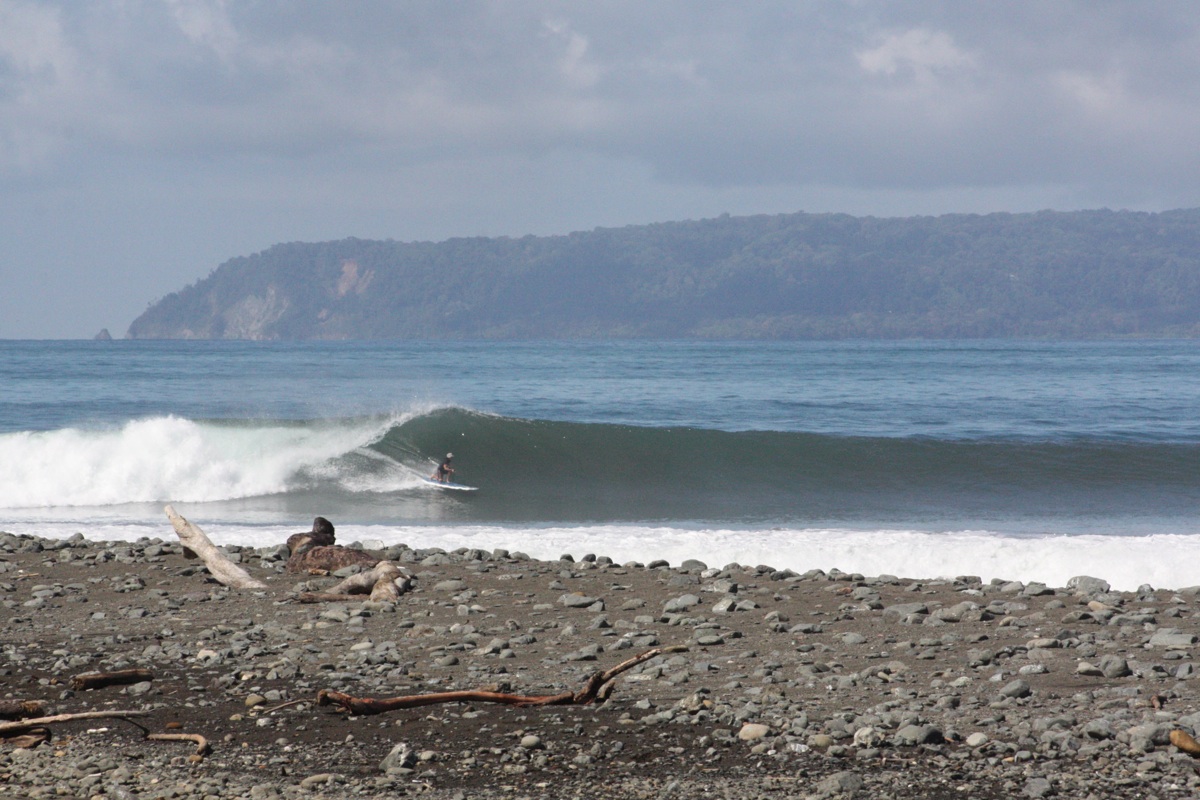Costa Rica Entertainment – When South Lake Tahoe author Jeremy Evans visited Pavones, a Costa Rican town known for surfing and fishing, what he found was a modern David and Goliath story.
 In 2004, a businessman with financial backing proposed building a yellowfin tuna farm in the small Costa Rican town bordering Panama. The fishery could have polluted the area, reduced the fish population Pavones depended on for income, and threatened the waves surfers love to ride.
In 2004, a businessman with financial backing proposed building a yellowfin tuna farm in the small Costa Rican town bordering Panama. The fishery could have polluted the area, reduced the fish population Pavones depended on for income, and threatened the waves surfers love to ride.
Evans’ book,“Battle For Paradise: Surfing, Tuna and One Town’s Quest to Save a Wave,” documents the struggle to prevent the fishery’s development.
Evans’ career includes stints as a journalist with the Tahoe Daily Tribune and Nevada Appeal newspapers (with contributions to the Sierra Sun and North Lake Tahoe Bonanza in the 2000s) and The Columbian in Vancouver, Wash.
He also authored “In Search of Powder: A Story of America’s Disappearing Ski Bum,” which explores the vanishing small ski towns in America.
Evans shared his experience recently on writing and researching the book, which comes out Oct. 1.
Q: Why did you pick the topic?
A: After I finished the first book on the ski bum, I traveled Central America with my wife. We were in Costa Rica and met up with some surfers traveling to Pavones. The way they described it made it sound like this magical place that was the end of the road and undiscovered. I spent more time researching it and found about the town’s surfing history and the tuna farm. I decided it was a great book.
Q: Who where some of the players?
A: It wasn’t like either side was exactly organized. The proposed fishery was really organized by Eduardo Velarde and a few others. It really was a little bit of a mom-and-pop aquaculture project that had some key investors. Pavones wasn’t this well-oiled machine as well. It was this rag tag group of fishermen and surfers coming together with environmentalists to say they don’t want this coastline ruined. They had enough media pull to bring it all the way to the Costa Rican Supreme Court of Justice.
Q: What is Pavones like?
A: Pavones is probably similar to what a lot of ski towns looked like 40 years ago. Not much development, a lot of shacks. It’s probably one the farthest towns from the capital. Other than surfers, not many people will know where Pavones is located. It’s definitely off the beaten path.
Q: Why was this whole project pushed through in the first place?
A: There was no precedent in Costa Rica for these types of aquaculture projects, so it kind of got pushed through because no one knew any better. Pavones is sparsely populated so that’s why the project got pushed through. Down there, something can get pushed under the rug and get pushed over its citizens because they aren’t well informed.
Q: How was the fishery stalled and defeated?
A: If it wasn’t for the environmental group, Pretoma, it would have gone completely through. Pretoma was successful in stalling it with a law suit and started gathering information. Once there was enough controversy, even the investors were backing away. That confluence of events really got the permit suspended and never renewed. Pavones did ultimately win.
Q: Were there any challenges in writing the book?
A: I think the biggest challenge there was connecting with the people in Costa Rica because they are a little wary of outsiders. The language barrier wasn’t too horrible because I speak some Spanish, but capturing the culture can be difficult. Unless you are living there day-to-day, you can get a little lost and only see snippets.
Q: What are some takeaways from researching this book?
A: When our “quest for progress” impacts one of the most remote places on Earth, we as a species have to look back and ask if we are hitting the “on” button too much. Our demand for sushi is now impacting a place that is so remote.
Q: Do you have any future projects in the works?
A: I have an itch and I’m trying to scratch it by figuring out what my next project is. But I have 3-year-old and 5-year-old daughters, and I’m teaching and coaching full time. I do have some ideas out there and they involve travel, but it’s a little different when you have children and a family. Maybe my next project will be related to that.
By Jack Barnwell, From The Sierra Sun

